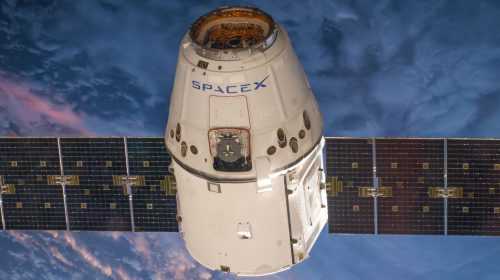OneWeb Service Back Online After 48-Hour Downtime
Jan 17, 2025
Eutelsat Group has again proved its operational resilience and technical expertise in effectively managing a temporary service outage in the OneWeb low Earth orbit (LEO) satellite constellation. Earlier, on January 2, the company stated that all services in the LEO broadband network were returned to normal after the disruption that started on December 31, 2024. The event that lasted for 48 hours was blamed on a software problem in the ground segment of the system.
 Eutelsat logo. Credit: Eutelsat
Eutelsat logo. Credit: Eutelsat
The management’s conduct towards the situation especially demonstrated its core values of operational efficiency and customer satisfaction. As soon as Eutelsat established what the problem was, it activated its technical crews and engaged vendors on the measures required to solve the problem. Throughout the process of solving the problem, the organization maintained consistent communication with affected customers, ensuring transparency and providing regular updates on the restoration progress. Thus, this proactive approach to customer relations consolidated Eutelsat’s leadership in the satellite communications market as a stable service supplier.
Speaking to Eutelsat’s Joanna Darlington, it was established that the software glitch was a result of an unexpected leap year calculation oversight. The technical team of the company was successful in restoring the service in parts within the next 36 hours of the disruption, which shows the problem-solving skills of this firm. The spokesperson also added that a thorough investigation had been conducted to ensure that no such event recurs in the future to confirm the company’s policy of improvement. The case has drawn focus on how Eutelsat is positioned in the market and the level of technology it has adopted. Being a provider of LEO and geostationary satellite services, Eutelsat certainly has a number of competitive advantages in the sphere of satellite communications. The organization currently has 35 GEO satellites alongside the OneWeb constellation, which gives it capabilities that competitors do not have. As for the geostationary fleet, which provides certain network redundancy, it was not necessary to use it during this particular situation.
As for future replenishment of constellations, as satellites of the current generation will reach their design life in 2027 and 2028, Eutelsat ordered 100 OneWeb satellites from Airbus Defence and Space as part of its plans for constellation replenishment. The OneWeb service is still adding capabilities and locations to its service. Currently available all across the Americas, large parts of Europe, Asia, and other parts of the world, the company plans to start offering full services for government and enterprise clients, including aviation, in the spring. It has also shed some light on some historical backgrounds concerning the OneWeb system. After the company successfully placed enough satellites into orbit to deliver coverage for the entire globe in 2023, the firm has encountered a number of issues associated with ground infrastructure rollout and regulatory authorization. Nevertheless, recent experience of Eutelsat shows a rather positive development in terms of operational experience and crisis management. The fast and effective solving of this technical issue is strong evidence of the operational development and technical competence of Eutelsat.





